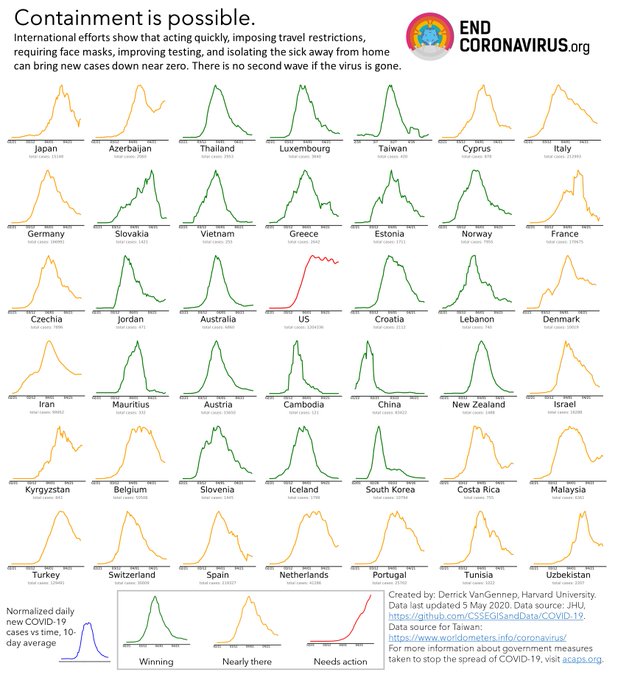It was Jan. 22, a day after the first case of covid-19 was detected in the United States, and orders were pouring into Michael Bowen’s company outside Fort Worth, some from as far away as Hong Kong.
Bowen’s medical supply company, Prestige Ameritech, could ramp up production to make an additional 1.7 million N95 masks a week. He viewed the shrinking domestic production of medical masks as a national security issue, though, and he wanted to give the federal government first dibs.
“We still have four like-new N95 manufacturing lines,” Bowen wrote that day in an email to top administrators in the Department of Health and Human Services. “Reactivating these machines would be very difficult and very expensive but could be achieved in a dire situation.”
But communications over several days with senior agency officials — including Robert Kadlec, the assistant secretary for preparedness and emergency response — left Bowen with the clear impression that there was little immediate interest in his offer.
“I don’t believe we as an government are anywhere near answering those questions for you yet,” Laura Wolf, director of the agency’s Division of Critical Infrastructure Protection, responded that same day.
Bowen persisted.
“We are the last major domestic mask company,” he wrote on Jan. 23. “My phones are ringing now, so I don’t ‘need’ government business. I’m just letting you know that I can help you preserve our infrastructure if things ever get really bad. I’m a patriot first, businessman second.”
In the end, the government did not take Bowen up on his offer. Even today, production lines that could be making more than 7 million masks a month sit dormant.
The story goes on to outline a Keystone Kops tale of ineptitude on a scale you simply couldn’t have imagined happening in the United States — ever.
Oh, and if you think this was a one-off, check this out:
The offer to the Federal Emergency Management Agency sounded promising: A Silicon Valley engineer said that he could deliver thousands of ventilators from manufacturers across China to help hospitals treat coronavirus patients.
The engineer was asked for more details. Within 12 hours, he responded with a 28-page digital catalog of medical supplies at his disposal, including protective masks and goggles.
But there were also a series of caveats: Interested buyers had to sign a contract within four hours of receiving a quote and pay the entirety of the order upfront. “Nonnegotiable,” the catalog said. And the engineer, Yaron Oren-Pines, had no apparent background in procuring medical equipment.
Federal officials passed on the vendor’s information to senior officials in New York and, within days, the state struck a deal to buy 1,450 ventilators from Mr. Oren-Pines for $86 million, one of the largest contracts for medical supplies since the outbreak.
The deal, however, began to unravel as quickly as it had come together.
In a matter of days, a bank had frozen funds that the state had wired to Mr. Oren-Pines because it found a transaction from his account suspicious. State officials were then warned by Mr. Oren-Pines and his business partners of possible shipping complications and were told that the ventilators might have to be routed through Israel, where they said they had connections.
Before long, Mr. Oren-Pines and his partners began accusing the state of breach of contract. State officials later tried to send inspectors to confirm the stockpile in China; that effort was unsuccessful, and the contract was terminated.
Gov. Andrew M. Cuomo’s office said that the contract was canceled because the state’s hospitalization rate fell far short of projections, and New York’s need for ventilators lessened, diminishing the urgency to proceed with a contract mired in complications.
But interviews with state and federal officials, as well as emails obtained by The New York Times, underscore how the challenges of a pandemic may have clouded a decision that placed millions of taxpayer dollars at risk.
The voided contract illustrated the desperate measures New York took at the height of the pandemic to procure precious medical equipment, as officials scrambled to find as many of the 40,000 ventilators that the state believed it needed to stave off a catastrophe. As the state scoured the globe for supplies, it eschewed competitive bidding protocols to expedite acquisitions and resorted to vendors that had never done business with the state.
You know there are dozens if not hundreds of such examples. I know it’s hard to avoid wasting money in these situations. But the Trump administration was already corrupt to the core and you can imagine con-men and crooked dealers knowing kindred spirits when they see one. They were primed to take advantage.






